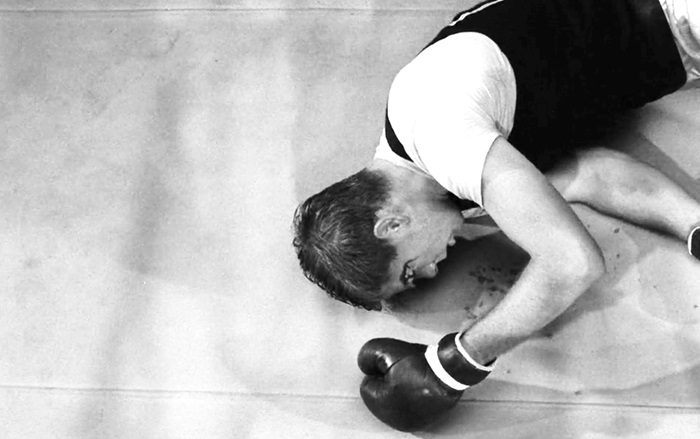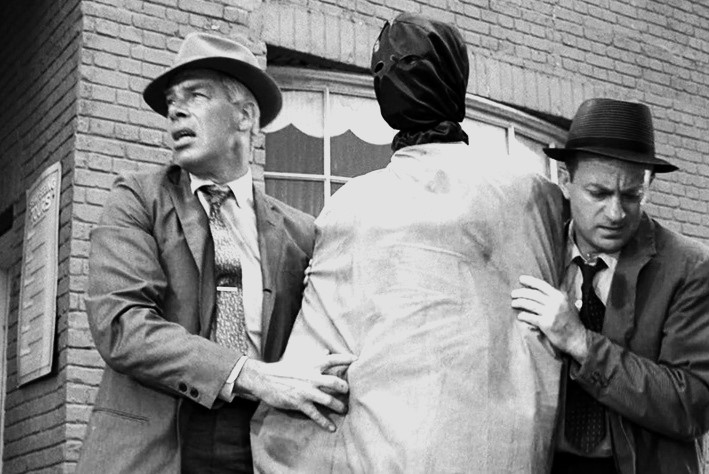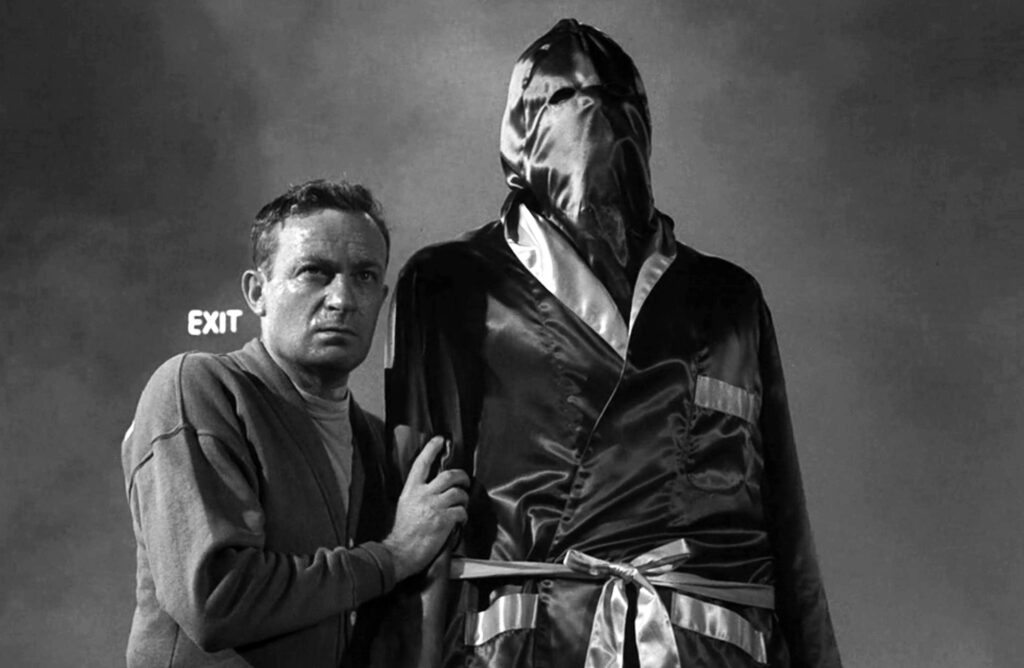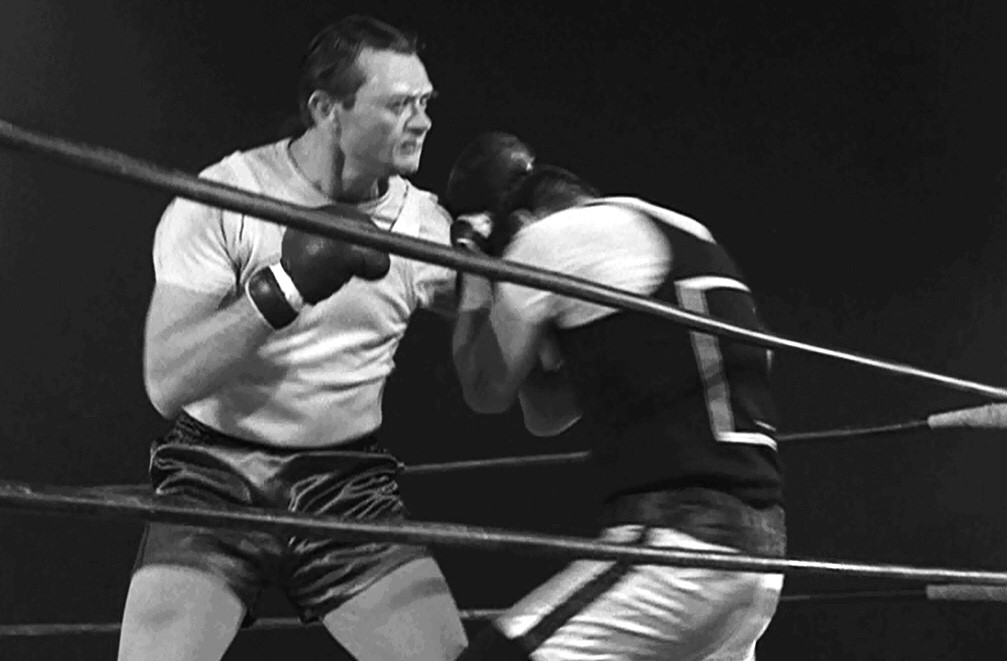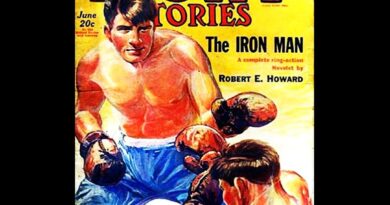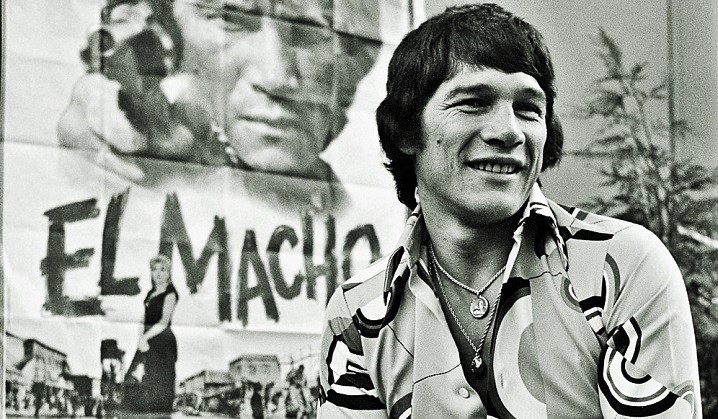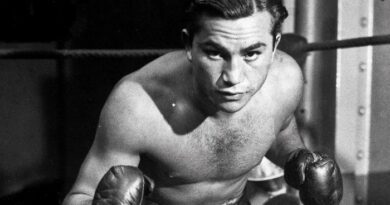Steel: Boxing In The Twilight Zone
The discord and violence, the blood, brutality, and brain trauma, it has all come to a head. Was it the delusion of a “civilized society,” spurred by human naivete that finally stripped boxing of its last veneer of respectability? Did a single incident serve as the final straw? Or maybe it was just the passing of an age when people had less access to visceral spectacles to satisfy their death drive—after all, television had yet to be invented when the fight game was still acceptable, still mainstream. Six years ago, everything changed: boxing was turned over to robots, and whatever sparked its final eradication is not for the viewer to know.
The 1963 Twilight Zone episode Steel, written by fantasy, horror, and science fiction author Richard Matheson (best known for his 1954 novel I Am Legend) commences as three figures exit a bus in Maynard, Kansas. The year is 1974, and something’s not right about one of them: a broad-shouldered Imhotep in a straight-jacket shroud and black executioner’s hood which the two other two men push along on wheels, one of which has just come off.
With practiced patience, the two men set to work on the mechanized descendent of the three-thousand-year-old Hellenistic Pugilist at Rest—ashy remains of a flame that once blazed guts and glory. The machine’s manager and one-time boxer, Steel (Lee Marvin), knows his faulty android needs a tune-up, but money’s tight. Still, “Battling Maxo” must have at least one more fight to give, or at least enough to cover the repairs which could put it back in the game. Pole, the mechanic and one-time trainer (the latter job now rendered obsolete), isn’t so sure. Maxo’s an antique—a hopelessly outdated B-2 model for which replacement parts are no longer made. Although Steel is certain that tonight’s purse is a step toward getting his boy back in the game, that won’t help tonight when Maxo fights a brand-new B-7.
Cut to a nearby table where Rod Serling sits behind a cup of coffee, whisps of cigarette smoke rising out of the frame as he speaks to the viewer. “No law can be passed which will abolish cruelty or desperate need—nor, for that matter, blind animal courage.” Of whose courage is he speaking? Man or machine? You know the Zone you’re in. You saw the signpost up ahead.
This new breed of fighter is the only indication that the story takes place in the future, where model numbers have replaced weight classes. In a locker room like any other, the dead-eyed Maxo is revealed, his body ravaged with scars and bruises that don’t heal and an electric system that’s on the fritz. Maybe the solution lies tangled amid the controls and wires behind that metal door on its back, but when another spring breaks loose, panic sets in.
It’s not too late to back out, Pole reminds Steel. There’s a guy in Philly selling a B-5 cheap. But Steel has a different plan. The B-2s cut, bruise, and bleed like real humans, and Steel was a good fighter in his day. He needs this payday, and what’s more important than money and pride—if not necessarily in that order? All Steel needs to do is to fool the promoter (who has never seen, let alone ever heard of “Battlin’ Maxo”), into thinking he’s the robot.
Pole tells Steel that the B-7 will kill him. Even a halfway decent B-4 could, and Pole’s not the only doubter: without an organic cell in its body, Maxo’s vacant eyes seem to stare directly at Steel as they project and portend his imminent defeat.
Amid cries from the crowd of ‘Scrap iron!’ and ‘Pile of junk!’, Pole wheels Steel into the ring on Maxo’s dolly. In the opposite corner sits the B-7, its hard-wired circuitry recalling Jeff Goldblum’s existential query from 1986’s The Fly: “Have you ever heard of insect politics? Neither have I. Insects don’t have politics. … No compassion, no compromise.” In its lack of organic life, the B-7 is even less compromising or compassionate—something Steel will find out soon enough.
Following a long, hopeless minute, Steel looks up to see the untouched M-7 raise its rubber arm in victory. Refusing to shell out a full five Cs for the pathetic one-rounder, the promoter gives the men half, enough to get them back to Philly with just under two hundred left over. Battered to a stupor, Steel begins devising how to allocate it: “Get some oil in him… a new lens plate… all we need’s a little overhaul.” Maxo’s fixed visage is almost human in its doubt and pity for the manager, as though the machine itself knows it’s washed up. But never mind. Steel will still show ’em what a good B-2 can do.
Serling’s introductory comments on the human need for vicarious cruelty are more applicable to the crowd than the fighters. Demented with sadistic joy at the demise of the would-be B-2, the so-called fans got what they came for. In the twelve years since robots replaced humans, the bloodlust hasn’t diminished, and for tonight, the death instinct is sated. But just for tonight—after all, how long before the impending obsolescence of the B-7 relegates it to the scrap heap?
Steel’s ravaged body punctuates Serling’s comments on “desperate need” and “blind animal courage” that never go away, and where even in the most distant of futures, humans cling to death more dearly than to life—just as long as the former is not their own. –David Curcio

